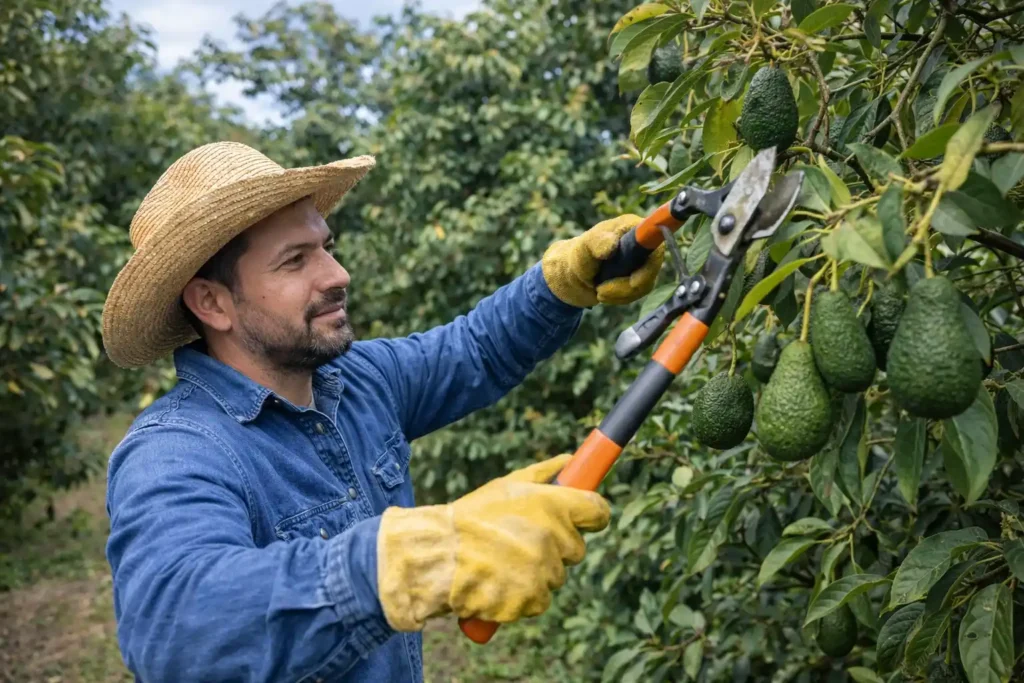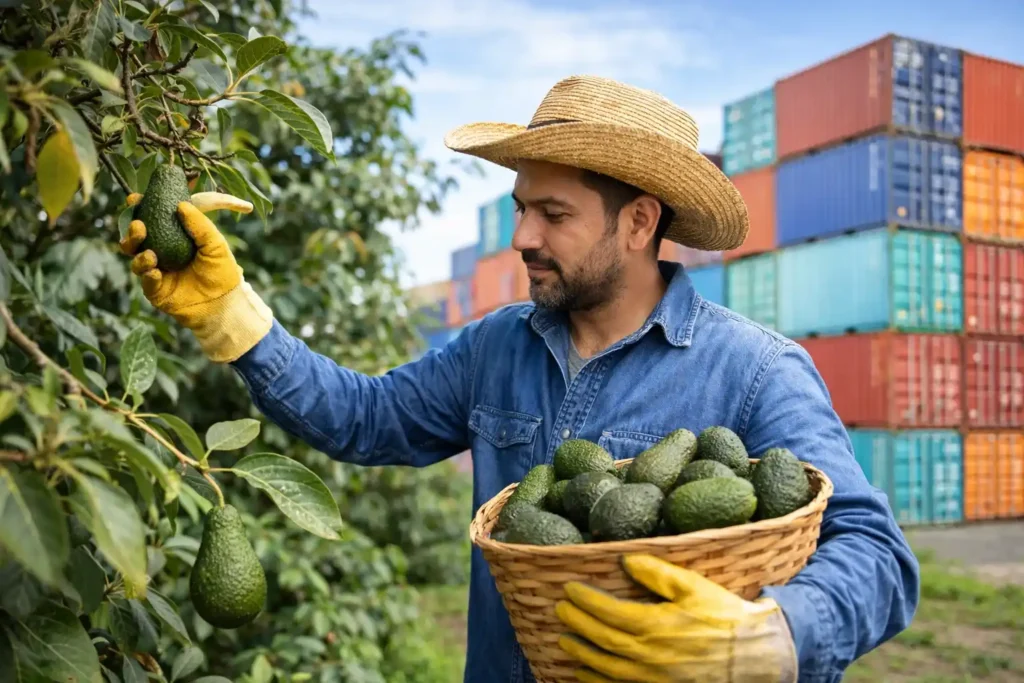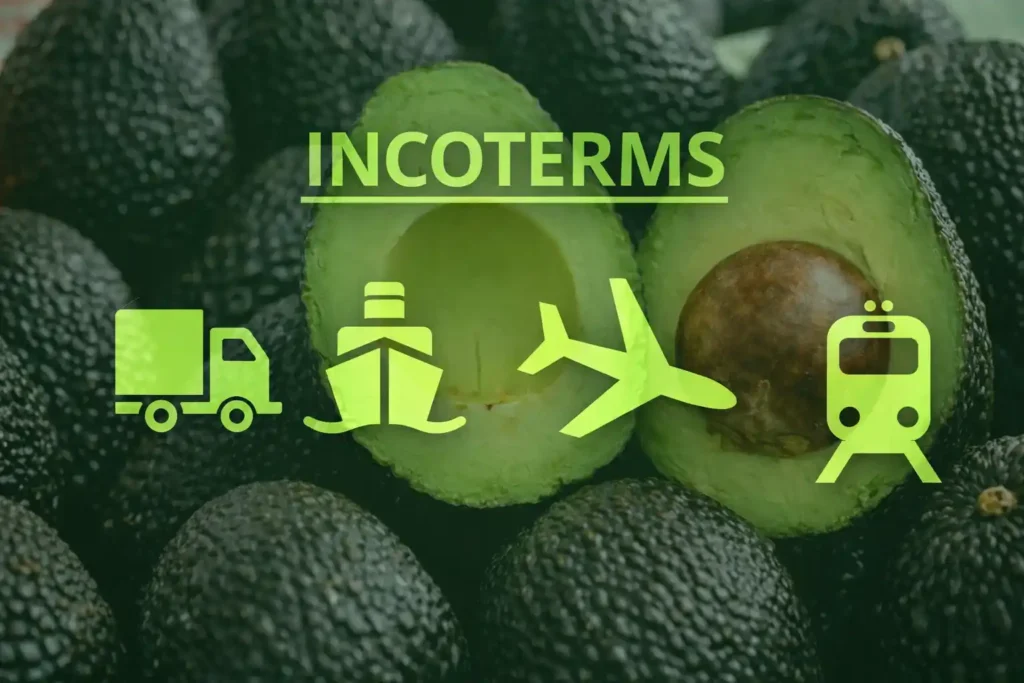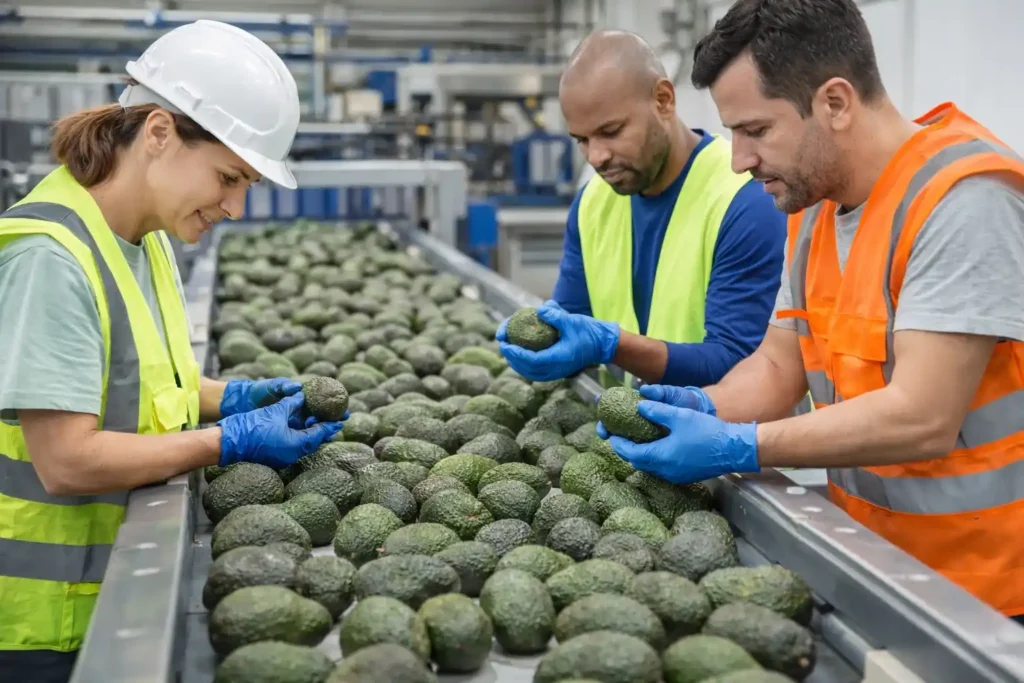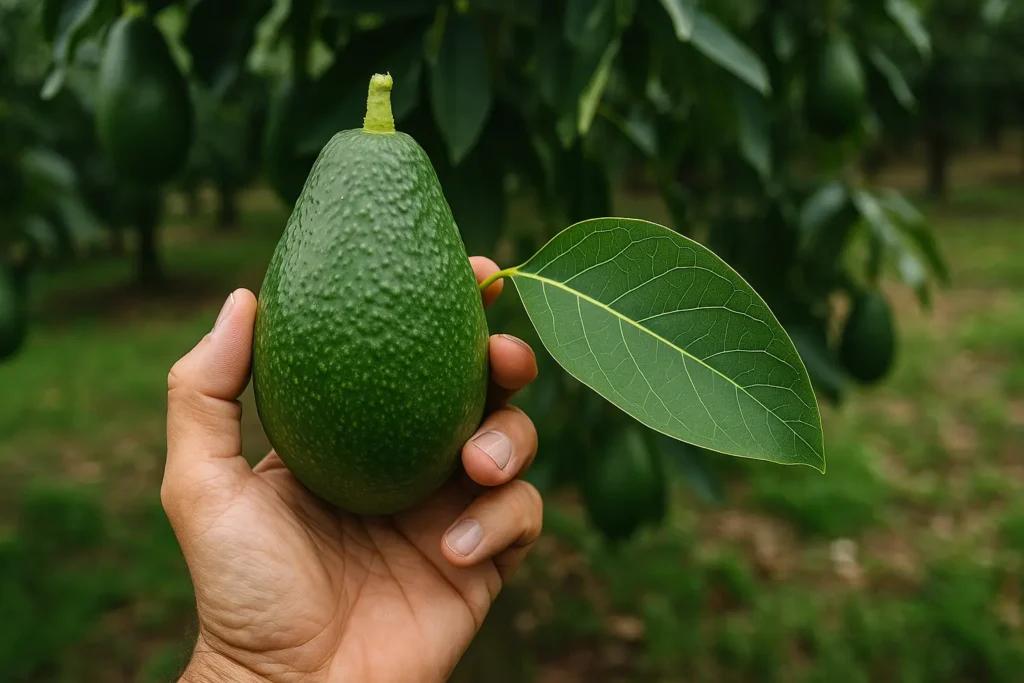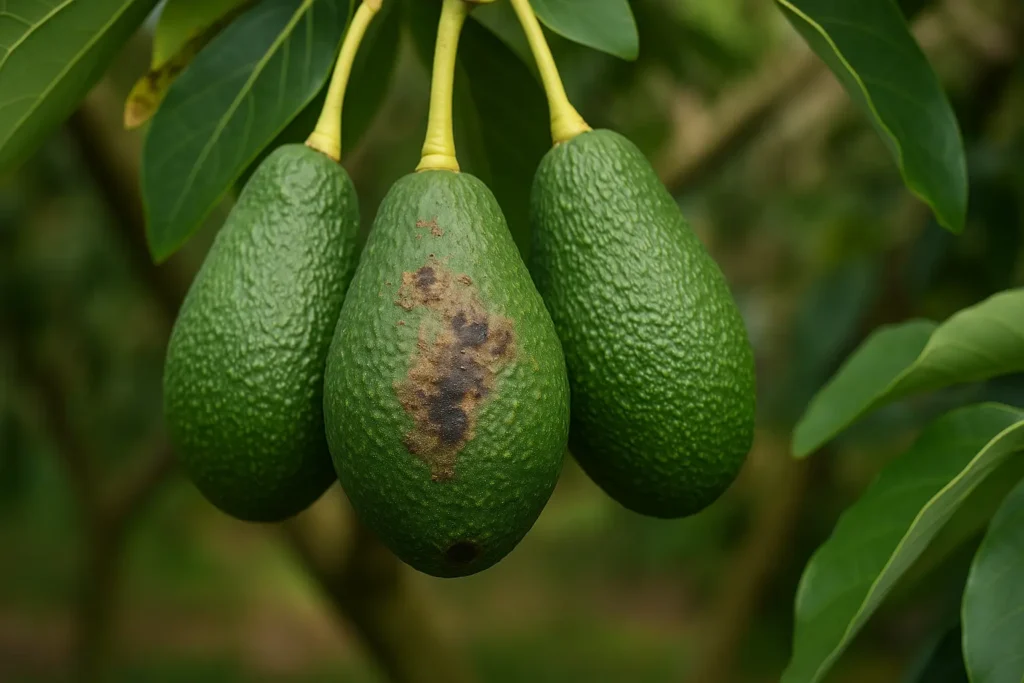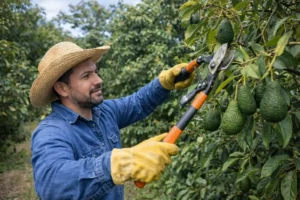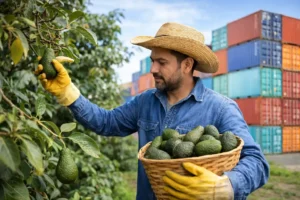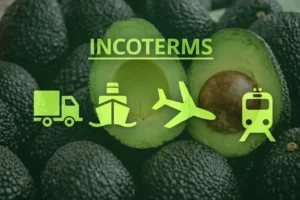Did you know that meeting strict international standards is the key for avocados to conquer the most demanding global markets? Avocado quality control process for export not only ensures its acceptance in premium destinations such as Europe, the United States and Asia, but also guarantees a product that stands out for its freshness, flavour and sustainability.
In this article, we will take you through the essential stages of this meticulous process, explore the international regulations that govern export, and discuss how a rigorous focus on quality benefits both producers and exporters.
Stages of the quality control process
The quality control process for avocados for export is a meticulous system that covers everything from harvesting to final packaging. Below we describe the main stages involved:
- Selection and Harvest: Quality begins in the field. Avocados must be harvested at the optimum ripening point to ensure quality and flavour. Selection is made based on criteria such as size, colour and absence of visible defects. Trained workers play a crucial role in identifying the fruits that meet quality standards.
- Post-harvest inspection: Once harvested, avocados undergo a rigorous post-harvest inspection. Any that show damage or signs of disease are removed. This stage is essential to ensure that only the best fruit continues in the process.
- Washing and Disinfection: Selected avocados are washed and disinfected to eliminate any pesticide residue, dirt or microorganisms that could compromise their quality or food safety. This step is crucial to comply with international health regulations.
- Classification by Size and Quality: After washing, the avocados are sorted according to size, weight and quality. The avocados are separated into homogeneous batches to facilitate packaging and distribution.
- Packaging and Storage: Once sorted, avocados are packaged under controlled conditions to maintain their freshness. Proper storage is crucial to prevent damage during transport and ensure that the product arrives in perfect condition at the destination market.
- Transport and DistributionFinally, the avocados are transported under optimal temperature and humidity conditions to maintain their quality during the journey. Continuous monitoring during transport ensures that the avocados arrive fresh and ready to be sold.
International regulations for export
Compliance with international regulations is a key pillar within the Avocado quality control process for exportThese regulations are designed to ensure food safety, excellence in product quality and commitment to environmental sustainability. Below are some of the most important regulations governing the export of avocados to global markets:
- GLOBALG.AP (Good Agricultural Practices): This is one of the most widely recognized certifications worldwide. It ensures that agricultural products, including avocados, are grown under sustainable and safe agricultural practices. GLOBALG.AP covers aspects such as traceability, food safety, responsible use of agrochemicals and environmental protection.
- FDA (Food and Drug Administration) regulations: In order to export to the United States, avocado producers must comply with FDA regulations, which include strict labeling requirements, pesticide residue testing, and sanitation standards. These regulations ensure that imported products are safe for consumption.
- Regulation (EC) No 178/2002 of the European Union: This regulation sets out the general principles and requirements of food law in the EU. It includes rules on traceability, risk management and food safety. Avocados intended for export to EU countries must comply with these strict standards.
- Fair Trade Certifications: In addition to complying with quality and safety regulations, some markets require fair trade certifications. These certifications ensure that producers receive a fair price for their product and that labor and environmental rights are respected in the production chain.
- Phytosanitary regulations:International markets also impose phytosanitary requirements to prevent the spread of pests and diseases through imported products. Avocados must undergo phytosanitary inspections to ensure they are pest-free and comply with the importing country's regulations.
These regulations not only ensure the quality and safety of avocados, but also open the doors to international markets, allowing producers to compete on equal terms and offer a product of excellence to global consumers.
Benefits of quality control in export
Implementing a rigorous quality control process when exporting avocados not only ensures that the product meets international standards, but also offers a number of key benefits for both producers and consumers. Below we highlight some of the main benefits:
- Access to Premium International Markets: Thorough quality control allows avocados to meet the strict quality requirements of international markets such as the United States, Europe and Asia. This opens the door to premium markets where consumers are willing to pay a higher price for high-quality products.
- Reputation and Customer Trust: Producers who consistently deliver high-quality avocados gain the trust of their customers and build a solid reputation in the market. This not only builds customer loyalty, but can also attract new customers looking for reliable products.
- Better Prices and Profitability: Avocados that meet the highest quality standards typically command a higher price in the market, which increases profitability for producers. By ensuring that each fruit meets export requirements, producers can negotiate better trading conditions.
- Waste Reduction: Effective quality control helps reduce waste by identifying and removing substandard fruits before they reach the market. This not only improves process efficiency, but also contributes to sustainability by minimising losses.
- Compliance with Regulations and Certifications: A well-implemented quality control process ensures compliance with international regulations and certifications. This not only avoids legal issues and penalties, but also facilitates export to multiple markets with different requirements.
- Consumer Satisfaction: End consumers receive a product that meets their expectations of quality and freshness. This not only improves the consumer experience, but can also translate into increased sales and recommendations, strengthening the producer's position in the market.
Do you want to learn more?
If you are interested in improving your quality control process for avocado exports or accessing demanding international markets, we invite you to explore our resources. We have a wide variety of content that will guide you through each stage of the process, from implementing quality control practices to complying with international regulations.
Find out how to obtain certifications like GLOBALG.AP, optimize your post-harvest procedures, and ensure your avocados meet the highest standards for international markets.
Visit our blog, guides and case studies sections to get the information you need to ensure your export success. Explore further and take your knowledge to the next level!

